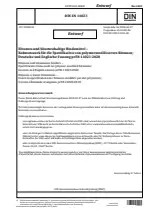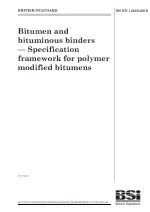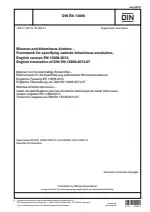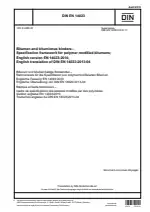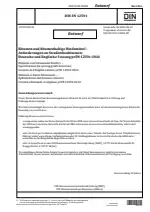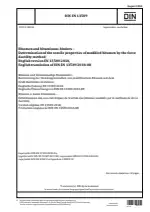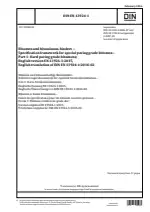Bitumen and Bituminous Binders - Specification Framework for Polymer Modified Bitumens
Also Known As:
The DIN EN 14023 standard provides a framework for specifying polymer modified bitumens, which are commonly used in road construction and maintenance. The standard defines the performance characteristics for these modified bitumens, providing tables that outline the required consistency at different temperatures, viscoelastic behavior, cohesion, resistance to flow and deformation, temperature sensitivity, strain recovery, and durability of various aspects of performance.
The standard also includes information on the Declaration of Performance, selection of grades, and test methods for assessing these characteristics. It is important to note that certain properties, such as adhesion and setting ability, are evaluated through tests conducted on asphalt mixtures or aggregate-bitumen combinations rather than on the bitumen itself.
The nomenclature for polymer modified bitumen includes the nominal penetration range and the minimum softening point. For example, a polymer modified bitumen may be labeled as PMB 45/80-60, indicating a nominal penetration range of 45 to 80 and a minimum softening point of 60 degrees Celsius.
| Descriptors | Binding agents, Bitumens, CE marking, Certificates of conformity, Certification (approval), Characteristics, Cohesion, Conformity, Consistency, Construction, Construction materials, Constructional products, Definitions, Determination, Materials testing, Modified, Polymer bitumen, Polymers, Product standards, Product tests, Properties, Road construction, Sampling methods, Sectional specification, Specification, Specification (approval), Testing |
| ICS Codes | 93.080.20 - Road construction materials |
| Language(s) | English + German |
| File Size | 2.6 MB |

